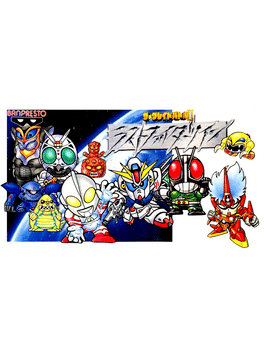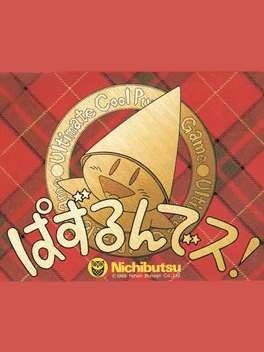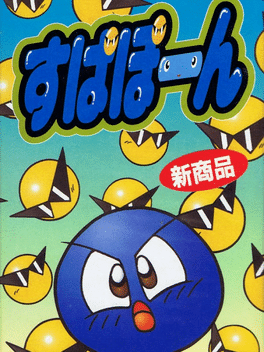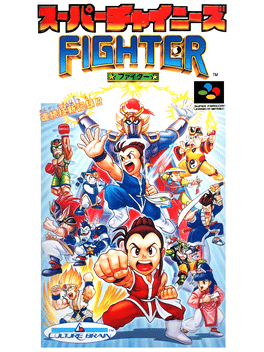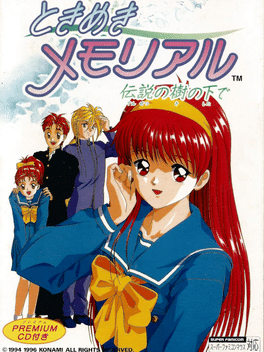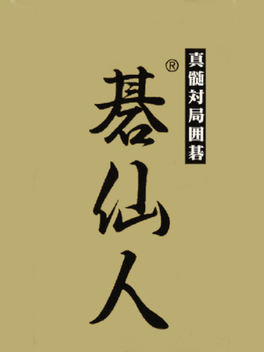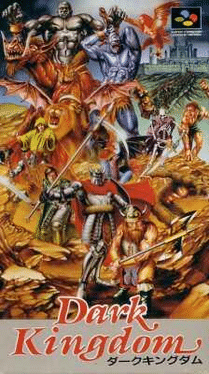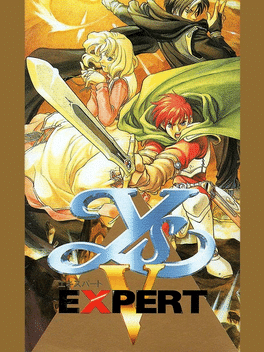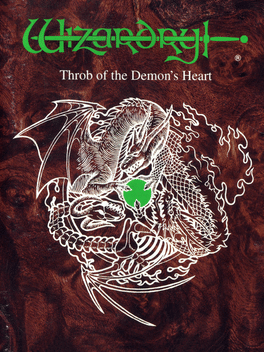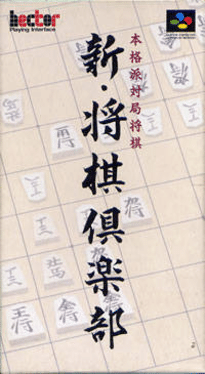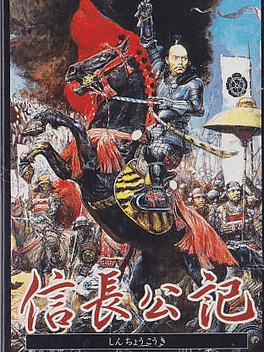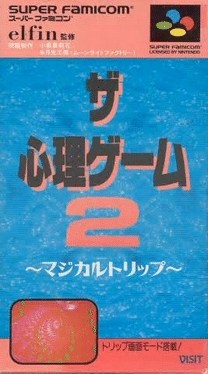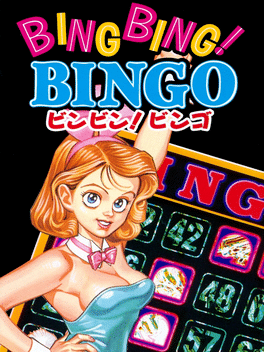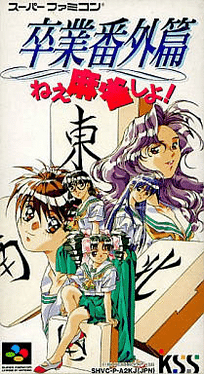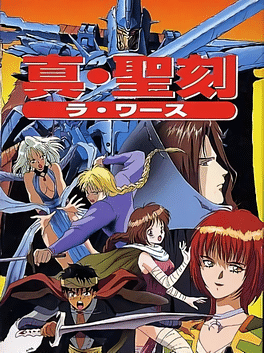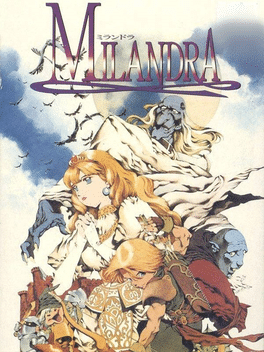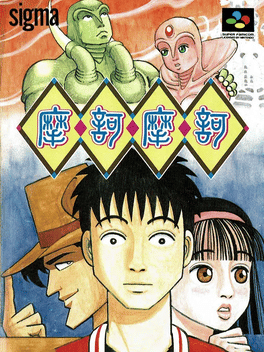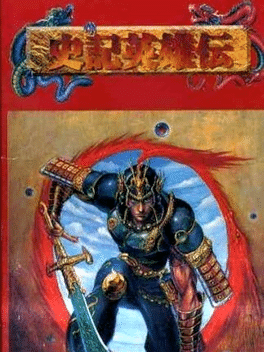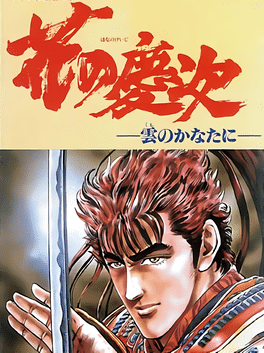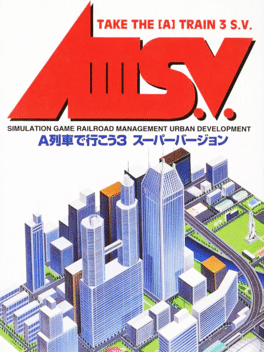Most Popular Super Famicom Games - Page 19
-
The Great Battle II: Last Fighter Twin
1992
Heroes unite! The World is plummeting into chaos. Be the hero that shines the light of hope! SD Great Battle has returned to Super Famicom, with more heroes, villains and action! -
Puzzle'n Desu!
1995
Puzzle'n Desu!
1995
A puzzle game for the Super Famicom where the hero has to push blocks across a grid to complete lines of the same color. -
Supapoon
1995
Supapoon
1995
A cutesy Breakout clone developed exclusively for the Japanese Super Famicom. Supapoon is a Super Famicom game released late in 1995 that presents a colorful world with an elastic blue hero reminiscent of a Dragon Quest slime. The hero's solar system has been invaded by a group of yellow balls wearing triangular shades, and he jumps into action to send them packing. Supapoon is inspired by games like Breakout and Arkanoid, but offers a few twists of its own, like being able to project the ball with additional power by using the "paddle"'s intrinsic elasticity, and a constant timer that ticks down faster whenever the paddle takes damage from skull drops or enemy attacks. The goal of the game is to reflect a ball of energy around a table, ensuring that it doesn't fall off the bottom of the screen. Rather than clearing all the blocks on the screen, which is common for other games of this type, the player only has to remove the yellow balls wearing shades to clear a level. They will receive a bonus for clearing the -
Tokimeki Memorial: Densetsu no Ki no Shita de
1996
Tokimeki Memorial is a dating sim by Konami and the first game in the Tokimeki Memorial series. The first game in the series is particularly notable for its "bomb" feature, where neglected, infrequently-dated girls would eventually become angry and gossip to their friends, severely reducing love meters across the board. In the middle of the game, when the number of known girls was high, these "bombs" became the primary concern of the player, forcing careful planning and strategies like round-robin dating. Although the feature was still present in the later games, it was considerably reduced in importance and the difficulty in avoiding it. In 1996, it was ported to the Super Famicom as Tokimeki Memorial: Densetsu no Ki no Shita de, and although drastically reduced in graphic and sound quality (the only voice clips were available during loading), included an exclusive CD with a radio drama and new arrangement of the ending theme, "Futari no Toki", this time sung by the majority of the girls, instead of just Shiori -
Shinzui Taikyoku Igo: Go Sennin
1995
Shinzui Taikyoku Igo: Go Sennin is a Board game, developed by Jorudan and published by J-Wing, which was released in Japan in 1995. -
Dark Kingdom
1994
Dark Kingdom
1994
The object is to play an evil mercenary named Gene Dorman. Instead of trying to save the world from an evil demon king, he joins forces with him in order to complete missions. Accomplishing each mission allows access to stronger allies, better abilities in addition to promotions in military rank. Sometime in the game, Gene meets up with the so-called "hero" Lux; sharing an undiscovered connection in the process. There is an external clock than can differentiate between day and night. Statues of the Demon King can be found in villages where the people pledge their allegiance to their leader. Players must also engage in random combat; ranging from wildlife to hostile castle guards. -
Ys V Expert
1996
Ys V Expert
1996
Ys V was originally released in 1995. In 1996, Falcom released a second version of the game for the Super Famicom with a higher difficulty level, known as Ys V Expert. -
Wizardry Gaiden IV: Throb of the Demon's Heart
1996
Wizardry Gaiden IV: Throb of the Demon's Heart is a Role-Playing game, developed by Access and published by ASCII Entertainment, which was released in Japan in 1996. -
Shin Shogi Club
1995
Shin Shogi Club
1995
Shin Shogi Club is a Puzzle game, developed by Natsu System and published by Hector, which was released in Japan in 1995. -
Shinchou Kouki
1993
Shinchou Kouki
1993
Shinchou Kouki is a Strategy game, published by Yanoman, which was released in Japan in 1993. -
The Shinri Game 2: Magical Trip
1995
The Shinri Game 2 is a Miscellaneous game, published by Visit, which was released in Japan in 1995. -
Bing Bing! Bingo
1993
Bing Bing! Bingo
1993
The basic concept of Bing Bing! Bingo is that the player is on a vacation to a private island somewhere in the world that is known for their Bingo-oriented lifestyle. He can either play Bingo through a slot machine, while skydiving, aplay a game of Bingo with Santa Claus, and an option to play Bingo on a pirate ship. There is also arm wrestling and a mode where players get to make imaginary wagers on the horses in case the player does not like Bingo. However, the numbers are announced in Japanese rather than English, so knowledge of Japanese numbers is vital for multiplayer action. Full card Bingo is mandatory for single player games but party games can use any variation of Bingo that the players consent to. A party mode is present for two players. -
Sotsugyou Bangai-hen: Nee Mahjong Shiyo!
1994
Sotsugyou Bangai Hen: Nee Mahjong Shiyo! is a Miscellaneous game, published by KSS, which was released in Japan in 1994. -
Shin Seikoku: La Wares
1995
Shin Seikoku: La Wares is a Japan-exclusive video game for the Super Famicom that was released in 1995. The hero Chiffon fights with his sword in order to save Kitan Kingdom from the evil "Renpoushi" on different stages in a world where a gigantic machine knight develops an intense battle. In battle, players can fight by riding on the giant knight "Souhei" by means of attacking with a weapon. -
Milandra
1997
Milandra
1997
Milandra is a Role-Playing game, developed by Tomcat System and published by ASCII Entertainment, which was released in Japan in 1997. -
Maka Maka
1992
Maka Maka
1992
Maka Maka (摩訶摩訶) is a Japan-exclusive role-playing video game which was released in 1992. The characters were designed by Koji Aihara. -
Shiki Eiyuu-den
1995
Shiki Eiyuu-den
1995
Shiki Eiyuu-den is a Role-Playing game, published by Outrigger Koubou, which was released in Japan in 1995. -
Hana no Keiji: Kumo no Kanata ni
1994
During the closing years of the civil war period and uneasy reign of Toyotomi Hideyoshi, when men high and low scramble to follow conventional propriety so that they don't attract undue notice (or death) to themselves, there is one very bizarre individual who is known for his legendarily outlandish and wild personality, physical appearance and behavior. Experience the adventures of Keiji Maeda from personal conflicts with his adopted Maeda family, brave combat exploits, travels to the capital, and relationships with famous existing figures such as Iyeyasu Tokugawa, Rikyuu the tea master, and Hideyoshi himself, to experiences with the foreign and Japanese Christian faithful. -
AIII S.V.: Take the A-Train 3 S.V.
1995
The game puts players in command of a railway company. There are no rival companies; the player controls the only one in the city and the game is resultingly fairly open-ended. A-Train III is the first game in the series to make use of near-isometric dimetric projection to present the city, similar to Maxis's SimCity 2000. There are two types of transport that the player's company can take: passengers or building materials. The former is more likely to be profitable, but building materials allow the city to grow. Wherever the building materials are delivered, they can be taken and used to construct buildings for the city. These start with houses, but eventually, as an area grows, roads, and shops and other buildings are built. These can provide extra revenue for a passenger service, but also allowing the city to develop and grow can be seen as a goal in itself. As well as the buildings built by the computer, in response to the materials being present, the player can construct their own buildings, such as ski resort
